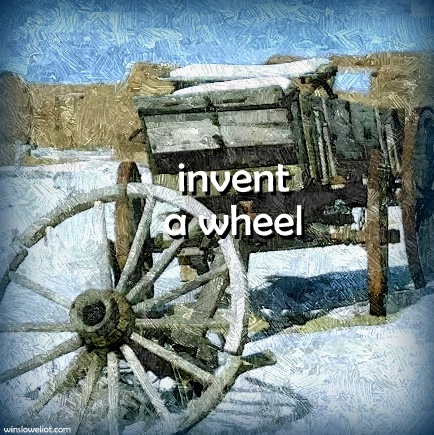 Imagine being the first ancient humanoid who realized how useful an object that turns effortlessly could be. Or the first time someone sat on a log that had fallen into a river and recognized how to use the river’s energy rather than their own. Inventing wheels, building boats, experimenting with flight, remain some of the most impactful inventions that we still use in our lives today. We’ve figured out so many ways of getting somewhere that we hardly have to move our own bodies at all—it’s done for us by these great inventions. What haven’t we yet invented though? What remains to be created? Research suggests that great inventions happen during that strange in-between time of not-knowing, of openness. Keats calls this experience “negative capability.” Heidegger calls it an “unconcealment.” I call it stillness. It’s when we perceive with insight instead of sight. In ancient times humans invented a wheel that actually already existed in a world of imagination and spirit. In stillness we access this world through our clairvoyance. We all have the capacity for clairvoyance—it’s being open to the unknown, the not-yet-manifested. Let your imagination take you to places you’ve never been and see what you find there. Clairvoyance is not about striving to see the unseen: it’s about allowing the unseen in.
Imagine being the first ancient humanoid who realized how useful an object that turns effortlessly could be. Or the first time someone sat on a log that had fallen into a river and recognized how to use the river’s energy rather than their own. Inventing wheels, building boats, experimenting with flight, remain some of the most impactful inventions that we still use in our lives today. We’ve figured out so many ways of getting somewhere that we hardly have to move our own bodies at all—it’s done for us by these great inventions. What haven’t we yet invented though? What remains to be created? Research suggests that great inventions happen during that strange in-between time of not-knowing, of openness. Keats calls this experience “negative capability.” Heidegger calls it an “unconcealment.” I call it stillness. It’s when we perceive with insight instead of sight. In ancient times humans invented a wheel that actually already existed in a world of imagination and spirit. In stillness we access this world through our clairvoyance. We all have the capacity for clairvoyance—it’s being open to the unknown, the not-yet-manifested. Let your imagination take you to places you’ve never been and see what you find there. Clairvoyance is not about striving to see the unseen: it’s about allowing the unseen in.
